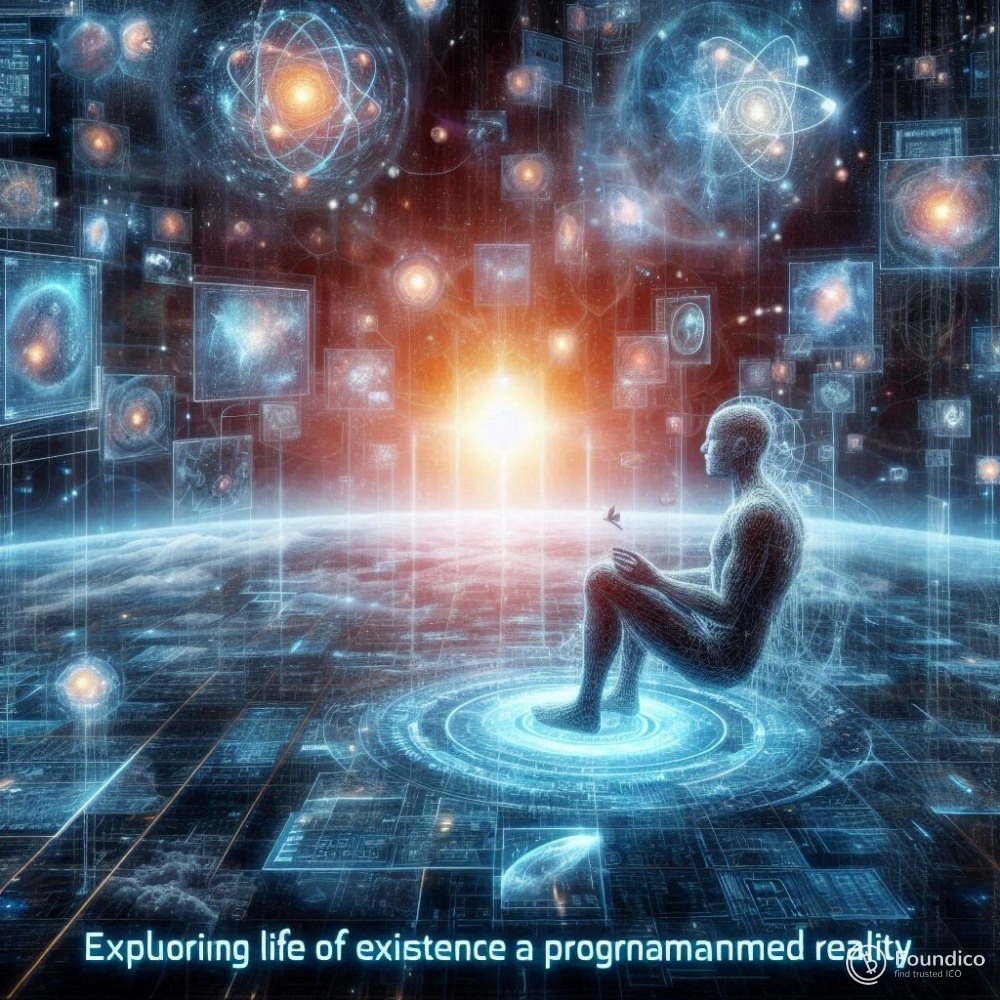The Architecture of Existence: Unraveling Life as a Programmed Reality

By Dr. Pooyan Ghamari, Modern World Analyst
In the contemporary discourse, Nietzsche's declaration that "God is dead" echoes with newfound resonance, reflecting significant shifts in context. Rapid advancements in genetics, technology, and artificial intelligence have fundamentally transformed our understanding of existence and the universe. It is as if we have pulled back the curtain to expose the underlying code that structures our reality, urging us to explore a fundamental question: Are we mere biological entities functioning as sophisticated machines, or is there a greater intelligence—a creator or creators—behind the intricate fabric of existence?
Modern scientific breakthroughs allow us to view humans as complex systems influenced by genetic programming, akin to highly advanced robots within a vast interconnected network. Our genetic code acts as an operating manual, dictating our traits, behaviors, and interactions within a multifaceted ecosystem. Through this lens, every organism and element of nature appears to play a role in a meticulously organized system, suggesting not random chaos but a purposeful design. This notion invites us to consider whether we are living in a simulation, part of a larger experiment, or the creation of an intelligence that orchestrates the world around us.
Exploring the possibility of a creator or creators behind the complexity of life encourages us to question the very essence of existence. Could there be an intelligence that has meticulously crafted the ecosystem, programming each living being to interact in ways that sustain and evolve the whole? Picture life as an elaborate game or simulation, where every individual, animal, and element is assigned a specific role, woven into a narrative far more intricate than our immediate perceptions suggest.
If we embrace the idea that life is structured like a program, we are confronted with profound inquiries about the purpose and meaning of our existence. What if the rules we follow, the instincts that drive us, and the environments we inhabit are all parts of a grand design? Each region of the world showcases unique dynamics, much like different levels within a video game. In this scenario, every person has a distinct function within this "architectural reality," executing objectives set by a comprehensive design.
This raises a pivotal question: Who is the architect? If we are indeed characters in a complex simulation, are we simply subjects of an experiment? Are we participants in a grand game, or might we be the products of a sophisticated academic endeavor conceived by a higher intelligence? Is there a supreme entity or multiple forces observing and shaping our experiences, or is our reality self-sustaining?
Traditionally, the concept of God or gods has offered explanations for creation and purpose. However, in our modern understanding, this perspective has evolved. Our insights into genetics, technology, and ecosystems compel us to redefine what we mean by "creator." The intricate balance of nature, the coded instructions within our DNA, and the behaviors of living organisms suggest not disorder but a carefully programmed order. The theory of a digital reality or simulation posits that our lives are part of a sophisticated construct, bridging scientific inquiry with our search for deeper meaning.
This architectural view of existence challenges us to reconsider our roles within this elaborate system. If we inhabit a reality governed by unseen designs or forces, we must ask ourselves: Are we mere passive participants, or do we have the power to transcend our programming and influence our destinies? By uncovering the rules of this grand game, can we shape its outcomes, or are we confined by the limitations set by an unknown creator?
As technology continues to blur the boundaries between humanity and machinery, these inquiries become increasingly relevant. Our exploration of artificial intelligence and robotics mirrors the complexities of human life. Are we fundamentally different from advanced robots driven by algorithms, or do we possess a unique consciousness that allows us to transcend the boundaries of this programmed existence? This investigation goes beyond philosophical debate; it shapes our understanding of ourselves and our capacity to mold our realities.
Living within a designed system implies that our existence encompasses more than mere survival; it invites us to delve into the deeper layers of reality. Our purpose may extend beyond blind participation in the game; we might be called to question, decode, and uncover the intricate rules governing our existence. In this light, we become both players and explorers, capable of seeking hidden truths and understanding the purpose that underlies our reality.
Delving deeper into this architectural construct also leads us to consider a collective purpose. If humans, animals, and ecosystems are interconnected components of a greater whole, our individual lives may contribute to a larger narrative of growth, evolution, and exploration. If creators exist behind the scenes, their intention may extend beyond observation; they might be guiding us toward greater self-awareness, collaboration, and understanding our roles within the broader framework of existence.
As we traverse this intricate journey, we encounter a delicate balance between our autonomy and the potential reality of a pre-designed existence. If we are indeed part of a sophisticated game or project, our task may involve fully embracing our roles while questioning, exploring, and seeking to comprehend the greater purpose behind our reality. We may not have all the answers, but recognizing our place within this architectural construct and our ability to influence it paves the way for new perspectives on life, technology, and the intricate layers of reality that shape our daily experiences.
Ultimately, the quest for meaning in a world of interconnection is not about dismissing the idea of higher forces; it is about exploring the depths of our own existence. Whether we are participants in a simulation, part of a grand experiment, or products of intentional design, the journey toward understanding our reality enriches our experience. Our awareness and conscious actions in navigating this "game of life" may very well be the keys to unraveling the mysteries of the architecture we call existence.
